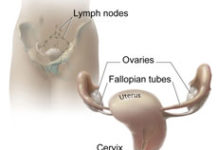On 9 July 2021, the US Food and Drug Administration (FDA) approved enfortumab vedotin-ejfv (Padcev, Astellas Pharma US, Inc.), a Nectin-4-directed antibody and microtubule inhibitor conjugate, for adult patients with locally advanced or metastatic urothelial cancer who
- have previously received a PD1 or PD-L1 inhibitor and platinum-containing chemotherapy, or
- are ineligible for cisplatin-containing chemotherapy and have previously received one or more prior lines of therapy.
FDA granted accelerated approval in December 2019 to enfortumab vedotin-ejfv for patients with locally advanced or metastatic urothelial cancer who have received a PD1 or PD-L1 inhibitor and a platinum-containing chemotherapy in the neoadjuvant/adjuvant, locally advanced or metastatic setting.
The EV-301 (NCT03474107) was an open-label, randomised, multicentre study required to confirm the clinical benefit of the 2019 accelerated approval. This study enrolled 608 patients with locally advanced or metastatic urothelial cancer who received a prior PD1 or PD-L1 inhibitor and platinum-based chemotherapy. Patients were randomised (1:1) to receive either enfortumab vedotin-ejfv 1.25 mg/kg on days 1, 8 and 15 of a 28-day cycle or investigator’s choice of single-agent chemotherapy (docetaxel, paclitaxel, or vinflunine).
The primary efficacy endpoint was overall survival (OS) with key secondary efficacy endpoints of progression-free survival (PFS), and overall response rate (ORR) assessed by investigator using RECIST v1.1.
Median OS was 12.9 months (95% confidence interval [CI] 10.6, 15.2) for patients on the enfortumab vedotin-ejfv arm (n=301) versus 9.0 months for those receiving chemotherapy (n=307) (95% CI 8.1, 10.7) (HR 0.70; 95% CI 0.56, 0.89; p = 0.0014). Median PFS was 5.6 months (95% CI 5.3, 5.8) compared with 3.7 months (95% CI 3.5, 3.9), respectively (HR 0.62; 95% CI 0.51, 0.75; p < 0.0001. The ORR was 40.6% (95% CI 34.9, 46.5) versus 17.9% (95% CI 13.7, 22.8), respectively (p < 0.0001).
Efficacy for patients ineligible for cisplatin-containing chemotherapy was evaluated in Cohort 2 of EV-201 (NCT03219333), a single-arm, multi-cohort, international study in 89 patients with locally advanced or metastatic urothelial cancer who received a prior PD1 or PD-L1 inhibitor and were ineligible for cisplatin-containing chemotherapy. The primary efficacy endpoint was confirmed ORR, assessed by blinded independent central review, and the key secondary efficacy endpoint was response duration. The confirmed ORR was 51% (95% CI 39.8, 61.3), including 22% with complete responses, and the median response duration was 13.8 months (95% CI 6.4, not estimable).
The most common adverse reactions, including laboratory abnormalities (≥20%) were rash, aspartate aminotransferase increased, glucose increased, creatinine increased, fatigue, peripheral neuropathy, lymphocytes decreased, alopecia, decreased appetite, haemoglobin decreased, diarrhoea, sodium decreased, nausea, pruritus, phosphate decreased, dysgeusia, alanine aminotransferase increased, anaemia, albumin decreased, neutrophils decreased, urate increased, lipase increased, platelets decreased, weight decreased and dry skin.
A boxed warning for serious skin reactions, including Stevens-Johnson syndrome and Toxic Epidermal Necrolysis, and a warning for pneumonitis were added to the USPI.
The recommended dose of enfortumab vedotin-ejfv is 1.25 mg/kg (up to a maximum dose of 125 mg) administered as an intravenous infusion over 30 minutes on days 1, 8 and 15 of a 28-day cycle until disease progression or unacceptable toxicity.
Full prescribing information for Padcev is available here.
This review was conducted under Project Orbis, an initiative of the FDA Oncology Center of Excellence (OCE). Project Orbis provides a framework for concurrent submission and review of oncology drugs among international partners. For this review, FDA collaborated with Health Canada and Australia’s Therapeutic Goods Administration.
This review used the Real-Time Oncology Review pilot programme, which streamlined data submission prior to the filing of the entire clinical application, and the Assessment Aid, a voluntary submission from the applicant to facilitate the FDA’s assessment. The FDA approved this application approximately 5 weeks ahead of the FDA goal date.
This application was granted priority review and breakthrough therapy designation.
Healthcare professionals should report all serious adverse events suspected to be associated with the use of any medicine and device to FDA’s MedWatch Reporting System.
For assistance with single-patient INDs for investigational oncology products, healthcare professionals may contact OCE’s Project Facilitate.






